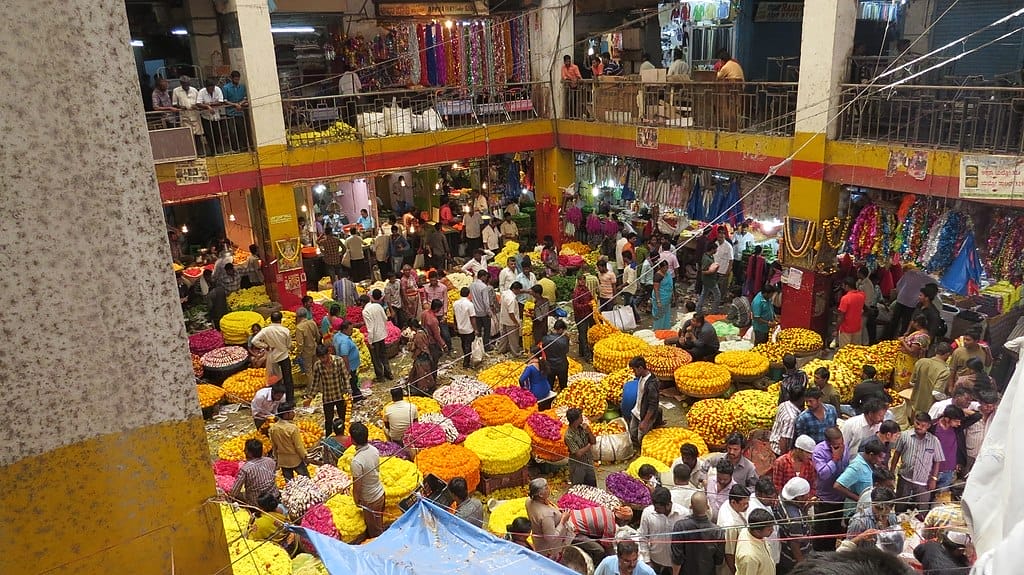Highest temperature in eight years
The city’s maximum temperature this month, so far, has been 37.6 degrees Celsius on April 2nd, which is the highest in the past eight years and third highest in the last 15 years. A Prasad, senior scientist from India Meteorological Department (IMD), says that the El Nino effect shows a decreased index of 1.1 from last year’s 1.5.
Though the city shows a steady rise in temperatures, the IMD predicts some rainfall in the second week of April, along with some pre-monsoon showers on April 12th and April 13th, with 61.7 mm. The IMD predicts that the weather in the city is expected to shift soon, with rain and thunderstorms alleviating the heat.
The rising temperature is also causing a surge in the sales of medicines that are beating heat-related health issues.
The main reason for the climatic issues is the loss of green cover by 66%, water bodies by 74% and a growth of 584% in built-up areas, according to the Centre for Ecological Sciences (CES) of the Indian Institute of Science. By 2038, it predicts that forests will be reduced to 0.65%, while according to the last census in 2022, it is 3.32%.
Meanwhile, pourakarmikas are asking for immediate enforcement of half-day work hours with no pay deduction. As they start at 6 am and work till 2 pm, they want their work hours to end at 11 am. Members refer to a government notice to stay indoors between noon and 3 pm.
The All India Central Council of Trade Unions (AICCTU) asks the workers to be given drinking water, ORS and buttermilk, with additional breaks, to protect them from heat stroke. The union explains that the extreme heat in the last few weeks has caused fatigue and giddiness.
Source: The Times of India, The New Indian Express, Deccan Herald
Read more: BBMP budget 2024-25: Allocations and climate action plan in conflict
Triple R water solutions
The Bangalore Water Supply and Sewerage Board (BWSSB) chairman, Ramprasath Manohar V, has told his officials to address water leakage issues and present a detailed report. The BWSSB is expected to pump water from the Hesaraghatta lake in the outskirts of the city. The Chairman inspected the lake and said it has 0.3 tmcft of water, while the groundwater levels are healthy. Water will be pumped only if there is a shortage in May, he says.
Encroachments too should be removed from the Arkavathi and Vrishabhavathi valleys, which can be revived to ensure better water management. Manohar launched the ‘Triple R’ campaign, to make the city water surplus by July 2026. Its three aspects are: reviving Arkavathi and Vrishabhavathi, recharging the ground with rainwater, and reviving 185 lakes in the city.
More than 200 residents from Royal Lakefront Residency, a Bangalore Development Authority (BDA) approved housing society in J P Nagar 8th Phase, have decided to boycott the Lok Sabha elections due to the severe water crisis in their area.
Source: Deccan Herald, Economic Times
Festive prices and supplies
The festive celebrations of Ugadi and Eid-ul-Fitr, amidst the water crisis in the heat, have impacted prices and the supply chain. At KR Market, prices of flowers soared to double or triple rates, due to the huge demand. Jasmine rose from Rs. 300 to Rs. 600 a kg, while roses went from Rs. 100 to Rs. 200.

However, the textiles business is booming, with a rising demand for traditional wear, such as saris, especially with embroidery, crystal work and Mysore silk. The price of gold too shot up by 1.72% or Rs 1,198 per 10 gm in a week, while silver touched a new peak of Rs. 82,064 per kg.
While the war in Gaza impacted date imports, there was an influx of varieties of dates during the festive season.
Source: Deccan Herald, Economic Times
Hospital issues
For three years, about 42% of the city’s patients have been bewildered about their hospital expenses. Although each patient is entitled to an itemised bill for consumables and services, 29% of patients get bills with bigger headings, such as pharmacy, room charges and radiology.
Meanwhile, for the first time, the Bruhat Bengaluru Mahanagara Palike (BBMP) referral hospitals provide newborn screening to detect Inborn Errors of Metabolism (IEM). Such flaws can arise from birth or metabolic issues, leading to problems such as delayed development, mental retardation and poor growth. Detecting the errors early would result in their cure with proper treatment.
Source: Deccan Herald
Read more: Insights from K-RERA: Large real estate projects add to Bengaluru’s water stress
Boom city’s multiple woes
Bengaluru’s civic issues have been raised by many members of the Bengaluru Navanirmana Party (BNP). For instance, at JP Nagar, there are problems such as vendor encroachment on footpaths, disregard for traffic laws, obstruction of roads by private vehicles, vendors obstructing free flow of traffic, BBMP garbage trucks parked in the area all night and encroachment of BMTC bus stops by food vendors.
BNP says that inefficient governance and the gap in the administration’s ability to resolve the residents’ issues has led to the problems in the city.
Source: The New Indian Express
[Compiled by Revathi Siva Kumar]